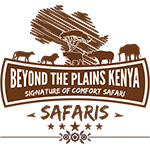
Our Impact
Our belief is that we thrive while others thrive. Therefore, we are dedicated to deliver our purpose to our clients and the local community at large. Through sustainable tourism, community involvement and environmental conservation we are sure to make good of our holistic goal. We have the environmental conservation concept ingrained in us, since we believe that nature gives selflessly, thus so should we.
As champions of the tourism industry, we are obliged to ensure that the communities we interact with are aware on the importance of environmental conservation as it is the core to our existence. In harmony, with that, we serve as protectors of nature and its inhabitants at large. Regardless of the challenges we may face we are determined to leave a good example for generations to come.
Ewaso Lions Conservation Programme
We at Beyond the Plains Kenya Safaris, take pride in the existence of our prides (lions), in the wild. It is for that same reason that we collaborate with the Ewaso Lions’ team to ensure they meet their objective, as their success serves as our success. The African lion population has declined by 43% in the last 20 years and lions now occupy only 8% of their historical range in Africa. The estimated numbers of lions across Africa are approximately 20,000. In Kenya, the national population now numbers less than 2,500 individuals. This reduction in lion numbers is primarily due to
habitat loss and conflict with humans, typically when lions kill people’s livestock.
Ewaso Lions is dedicated to conserving lions and other large carnivores by promoting coexistence between people and wildlife. We on the other hand see this as good gesture to the wild and nature at large, thus or reason to collaborating and championing for the purpose. Ewaso Lions is 100% an independent African wildlife conservation organization based in Samburu, Isiolo and Nairobi, which engages and builds the capacity of key demographic groups (elders, warriors, women, and children) by developing approaches to reduce human-carnivore conflict.
They conduct applied research and work with our communities to address ecological problems. In addition, they carry out educational initiatives to reinforce traditionally held beliefs and the evolving culture of wildlife conservation across the landscape. Their mission and vision captivates us to ensure that they serve their purpose accordingly.
Rhino Conservation
Shockingly three of the five species of rhinos are critically endangered and the two remaining have less than 80 rhinos left. With this in mind we Beyond the Plains Kenya Safaris, see the necessity to collaborate with different organizations who champion for the conservation of rhinos. Our collaboration with the Ol Pejeta conservancy enables us to be part of their efforts to rehabilitate the rhinos.
Being home to two of the world’s last remaining northern white rhinos, and a sanctuary for over 140 critically endangered black rhinos Ol Pejeta conservancy plays a huge role in rhino rehabilitation. In addition, it employs highly trained rhino protection squads, partners with international veterinary experts and ensures data is gathered regularly on each individual animal. Steps like these ensure that they remain a role model for rhino conservation in East Africa.
We also plan collaboration with the Rhino Sanctuary, in Meru National Park to ensure that we assist in every way possible. Through creating awareness on the significance of protecting rhinos and conserving their longevity, we are sure to achieve huge milestones. The Rhino Sanctuary area devoted to the protection and population increase of rhinos is today about 50 square kilometres and is located on the Western boundary of the Park. Here 40 white and 20 black rhinos roam freely. The Sanctuary is a success story for Meru National Park and the Kenyan Wild at large.
It faring better than most other areas where rhinos are in Kenya is a step ahead towards the rhino conservation success. It has the best rhino birth rate and the less mortality than any other is. Still it needs some effort and a game drive to locate the beautiful beasts in the huge territory. Thus, we are arranging to procure two conservation cars, to serve in the monitoring the rhinos in both Ol Pejeta Conservancy and The Rhino Sanctuary in Meru National Park. We are working tirelessly to ensure that we contribute to the rehabilitation and conservation of the rhinos.
In addition, we appreciate the efforts made by the rhino rangers who are always on the ground feeding and monitoring the rhinos. We are making efforts to ensure that each ranger gets the needed support they require, through incentives for their good work, at least on a monthly basis.
Community Health
To enhance coexistence with the local communities around the wildlife areas we have made effort to ensure that they feel as part of us. Through provision of mobile clinics from time to time, we are able to monitor their health issues, as they also play a role in the conservation of the environment and wildlife at large. Not only, do we offer mobile clinics but we also make effort to enlighten them of our course, that is, through talks and holding crusades.
In turn, this helps broaden their knowledge and as a result, they get to grow and see beyond their area of living. In addition, we also hold regular campaigns against the illegal traditional practices that affect their wellbeing. For instance, most local communities living near wildlife-protected areas are prone to Female Genital Mutilation.
Our efforts towards curbing FGM take into consideration that humane grounds of living are adhered. Our efforts have resulted to the building of self-esteem among girl children in their community, as they feel significant as opposed to earlier years. This has geared up their involvement towards the course of their health and enhanced their interest to engage in different growth nurturing activities like environmental conservation, wildlife protection and community growth.
“Education, if it means anything, should not take people away from the land, but instil in them even more respect for it, because educated people are in a position to understand what is being lost. The future of the planet concerns all of us, and all of us should do what we can to protect it. As I told the foresters, and the women, you do not need a diploma to plant a tree.” Wangari Maathai Founder, Green Belt Movement
School Feeding Programme
In an initiative to nurture local community children into growing both physically and mentally strong, we have taken a pledge of feeding them from time to time in their schools. From our proceeds and those of well-wishers we aim at ensuring that, every single child within the wildlife-protected areas get to have the basic need of food. This way performance of the children in school and in other co-curricular activities are enhanced.
This also will serve as way of giving back to the community, as these children will in future, follow suit and be assertive and empathic leaders of their successors. It is our aim to ensure that our efforts become consistent, even in years to come.
“It is possible to educate children in the pleasures of food; and that doing so will set the children up for a lifetime of healthy eating. Feeding is learning.” Bee Wilson,
Conservation Education
Even as we feed and nurture children from the local communities within the wildlife protected areas, we are bound to educate them as well. Through offering of bursaries to needy children, we will foster their stay in school. In consideration of the need to conserve our environment, we also plan to come up with a local library for future conservationist.
This will build interest among the children and help them get better learning resources creating a culture of involvement in protecting and conserving the environment as well as advancing their knowledge on the same. In turn, a culture of being environmental sensitive will be ingrained in them and with time become a norm among the people of that community. As a result, healthy interactions between the entire community and us through the local library a safe and healthy environment is certain.
Our Schedule of Support
In the spirit of Ubuntu, “I am because we are”, we at Beyond the Plains Kenya Safaris appreciate any effort towards fostering our objective..
- Help plant a tree to enhance reforestation $7
- Help buy books for our local library $8
- Help feed a School for a day $40
- Help support Rhino conservation and rangers in bothMeru National Park and Ol Pejeta Conservancy $1800
- Help maintain the conservation vehicle for a year $2200
- Offer scholarship for a high achieving student $5000
- Help equip a classroom to enhance education $15000
- Dig boreholes and help in pumping and piping $20000
- Help build a School to foster children education $150000

















